Agriculture Research in Côte d’Ivoire
Dr. Tiémoko Yo, General Director of CNRA/ NARC (National Agronomic Research Center)
CNRA (NARC) is a leading agriculture research company in Côte d’Ivoire. The company focuses on seeding research. As a result of continuous research, CNRA has come up with significant innovations such as the next generation commercial plants resistant to certain diseases.
Interview with Dr. Tiémoko Yo, General Director of CNRA/ NARC (National Agronomic Research Center)
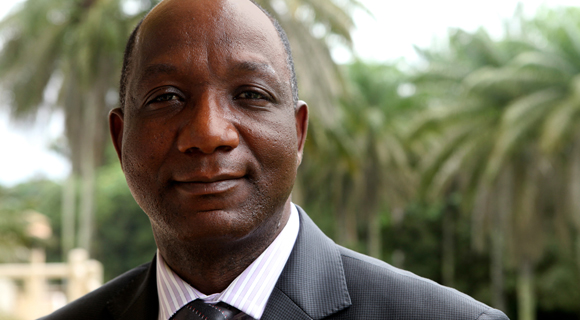
Côte d’Ivoire has witnessed a 7% decrease in its agricultural growth due to the post electoral crisis. How do you evaluate the agricultural sector in 2011, and what are the prospectives for 2012?
The agricultural sector and agricultural producers in Côte d’Ivoire have been relatively immune to the post electoral crisis. In 2011, Côte d’Ivoire reached a record level of 1.5 million tons of cacao and the rubber production has risen to 230,000 tons. In addition, palm oil production has also increased to 350,000 tons. Through these high production rates, Côte d’Ivoire has consolidated its place as a world leader in these domains. Furthermore, the production of cashew nuts has reached its highest peak, placing the country as the first producer in Africa and the first exporter worldwide.
Naturally, some sectors like the cotton and coffee industries have been affected by the crisis, however, we can consider that the agro industry in Côte d’Ivoire has surmounted the global crisis and that the years to come offer a higher prospective growth.
Compared to the products imported from Asia, are the Ivoirian products competitive enough? What are the main difficulties for the Ivorian food industry? Is it globalization?
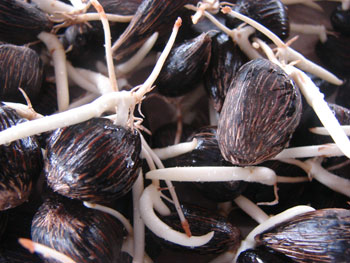
This sector is facing many difficulties; the productivity ratio, the quality of goods, and the potential competitiveness of the product on the international market represent some of the main difficulties encountered. The Ivorian agriculture sector has not yet reached an optimal performance level in productivity because the use of researched technology has not been adequately used. The use of fertilizers and the training of the producers have not yet reached their best levels either, mainly in the food crops sector. The yield has yet to be improved.
As for quality, the CNRA is aware that the agriculture in Côte d’Ivoire focuses on exported products. One of the difficulties is reaching the international quality control norms. There are a lot of norms in the sector like the nutritional sector and sanitary norms. These norms are getting stiffer and more constraining. There are even strict environmental and social norms.
Finally, the main problem concerns the competitiveness of the product on the international market. The Ivorian agriculture is facing competition from South American countries and Asia. The company benefited last year from certain tariff protection norms in Europe, however, these protections are disappearing with globalization.
Some agricultural sub-sectors like the banana or pineapple sector are already feeling the pressure given that they didn’t know how to adapt their production in an efficient manner. Consequently, in the future it will be a big challenge for the Ivorian agriculture to produce competitive products on the international market.
Today, the cacao producers are replanting their orchard with a new sort of cacao plant. The plant is more productive and highly efficient. It ripens early and benefits from a high quality seed that is resetting the standards in the industry.
The mission of CNRA is to promote and develop new exportable products and also to improve the competitive potential of Ivorian products. Can you present us with the plans to achieve these goals?
The CNRA agriculture research center is an agricultural research facility, and the mission is to lead technological innovation. The research should be redistributed to the producers so that they will be able to improve their productivity ratio.
As a result of continuous agriculture research, the company produced a significant amount of innovation, such as the next generation commercial plants resistant to certain diseases. These findings have been transferred to the agricultural companies and the producers.
Today, the cacao producers are replanting their orchard with a new sort of cacao plant. The plant is more productive and highly efficient. It ripens early and benefits from a high quality seed that is resetting the standards in the industry. Along with the palm oil products, we have researched new sorts of palm oil trees which are adapted to the Ivorian African environment.
The CNRA agriculture research center is a leader in terms of high quality production of palm oil tree seeds and is certified ISO 9001. Our agriculture research center has focused on developing the agriculture sector. Other research has yielded additional results in the domain of food crops such as cassava. The CNRA agriculture research center has made new elements available to the agricultural industries in Côte d’Ivoire that reinforce the productivity ratio of products and brought new techniques that decrease or halt the diseases that attack the plants.
Furthermore, the CNRA is also working to improve the level of training of the agricultural technicians.
There are other renowned companies like Monsanto that do genetic research on a large scale with a lot of resources. What are the advantages of CNRA? What differentiates the company from the companies such as Monsato?
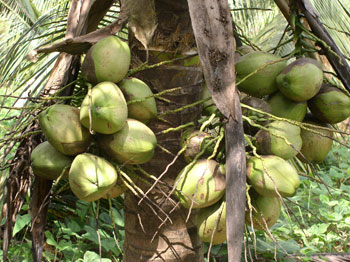
Research is an activity that should be open and based on partnerships on a regional, national, and international level. Consequently, the center is a main player in terms of partnerships and networking in Africa. Currently, the CNRA is heading the organization managing and coordinating the agriculture research institutions for the entire continent. The main goal is to develop agriculture on a national scale. The company’s chief advantage is familiarity with the terrain, knowledge of the producers, and comprehension of the agro industrial needs.
The center has especially focused on the participative management and on the demand of the producers transcribed in research. This process allows the company to elaborate new technologies that respond directly to the producer’s needs.
What are the main difficulties that CNRA encounters in the research field? Are the main challenges financial difficulties, the development of strategies, or the connection between CNRA and the producers?
The difficulties that our agriculture research encounters are the same challenges that the national agriculture encounters. Over the last 15 years in Côte d’Ivoire, as in many other African countries, public policies have neglected the agriculture and invested poorly in the agriculture sector. The resources spent on agriculture were less than 5 % of the total budget of the country. These numbers show the negligence of public policies towards agriculture and agriculture research in Côte d’Ivoire.
Paradoxically, the agriculture sector in Côte d’Ivoire employs most of the population, generates the largest portion of revenue, and is the field that, if developed properly, can contribute rapidly to reduce rural poverty. By that reasoning it becomes clear that the main difficulty research faces is attributing the right amount of resources to the agricultural field.
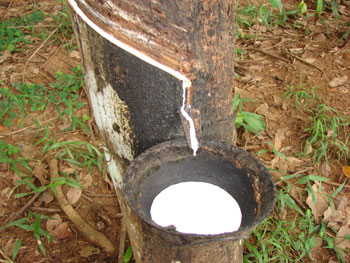
On a field level, our agriculture research center needs to find and develop efficient mechanisms that will allow the transfer of acquired technologies to the producer. If CNRA produces the right sort of rice seed, it will not necessarily affect the production of the country.
To resolve this issue, CNRA needs sophisticated methods that permit seed multiplication so that we can transfer it to the producers. Our agriculture research center also needs new mechanisms to provide proper fertilizers at an acceptable price. Moreover, CNRA should be able to train the producers properly so that the seeds can reach their full productivity potential.
Does the company export its know-how?
Though CNRA’s structure is not a commercial structure, we do benefit from seed sales on both local and international markets. Yet all the revenues are reinvested in agriculture research in Côte d’Ivoire, thus permitting the company to continue their work.
The CNRA is a public service institution with a private management. This agriculture research center is a Côte d’Ivoire national political service for agricultural development, specialized to help the producers develop and improve their capacities. Naturally the company also sells the seed. Last year our agriculture research center supplied 10% of the global demand for palm oil tree seeds.
What are the specific products that CNRA wants to promote abroad?
The main product that the company plans to sell abroad is palm oil tree seeds. Company agriculture research has succeeded to produce a seed resistant to multiple climates and environments like in Asia.
It is also resistant to diseases specifically found in South America. Furthermore, the seeds are conceived to grow on African soil and even in mountainous countries like Burundi and Rwanda. That is the reason why the center certified the product ISO 9001. However, other products like the cacao, coffee, and corn seeds produced by the company follow the same quality control norms as the palm oil seed. By the palm oil certification, the CNRA Agriculture research center wanted to show that the center is dedicated to producing seeds that respect the international norms.
How does CNRA compete?
There are two key factors relating to the competition level. The first factor deals with the production system from the seeds. The seeds have approximately 25 tons of yield potential if grown properly. Nevertheless, the planting conditions should be optimal to reap the full benefits of the seeds. There are some large scale planters which are working with SIFCA and are reaching these levels of production.
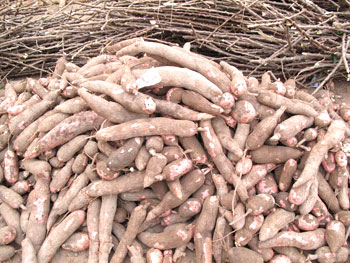
On the other hand, there are the small producers that do not follow these methods and do not use enough fertilizers, thus they have a weaker production level. This causes a productivity issue and because of that the competitive potential of the production decreases.
The other key factor is the transformation process. The efficiency of processing the palm oil in Côte d’Ivoire is very low. In Asia the production level is more competitive because they have invested more resources in innovation and equipment. This gives them an advantage in the competitive game. Also, the price of the fertilizer is 3 to 5 times more expensive in Africa than it is in Asia.
In the long run, is the CNRA a feasible and successful project?
First of all, the company intends to accelerate the transfer of the new efficient plants to the producers. Our agriculture research center is already taking the necessary steps to encourage a mass production of seeds. In the years to come, they are going to distribute cacao seeds that are able to fill 50,000 hectares. The center is already producing seeds for 70,000 hectares of palm oil and is expecting to reach 100,000 hectares each year. CNRA is also encouraging rubber production by putting wood-stock garden at the disposal of the producers equipped with the necessary tools. We are doing the same for the cotton and coffee agriculture and for the farm crops.
The agriculture research center will be a platform able to diffuse the know-how gathered by the institution through new ICT technologies. The company will broadcast training courses on local radios, television and the cooperatives. We are planning to send text messages on cell phones. They proposed a technical message service for individual producers, enabling the company to offer the scientific training needed to optimize their productivity rate.
Furthermore, the CNRA has created a database containing strategic information. This information will be used in the future by decision makers such as the politicians and actors in the production chain. Through this database they will obtain the necessary data needed to elaborate plans in the future.
The center is also going to reinforce the training level of the agricultural technicians. The CNRA has obtained funding from the World Bank that will allow us to create a training center in Côte d’Ivoire. This center will help improve the education of agricultural technicians. The company is planning to continue developing the agricultural technologies and in the mean time will continue agriculture research by addressing the new challenges: climate change, bio technologies, and the sustainability of domestic agriculture.
Regarding the global situation in Côte d’Ivoire, the country has been in an unstable situation for about 10 years and so the production level and economical activity are not at their best. But now the time has come. Côte d’Ivoire has a lot of potential and with the current political stability, the country has all the necessary tools to launch an economical growth. Côte d’Ivoire has dynamic agriculture research facilities; it has both large and competitive human resources and natural conditions propitious to agricultural development. All these factors can make Côte d’Ivoire an important agricultural power.
At CNRA, we invent tomorrow’s agriculture today.